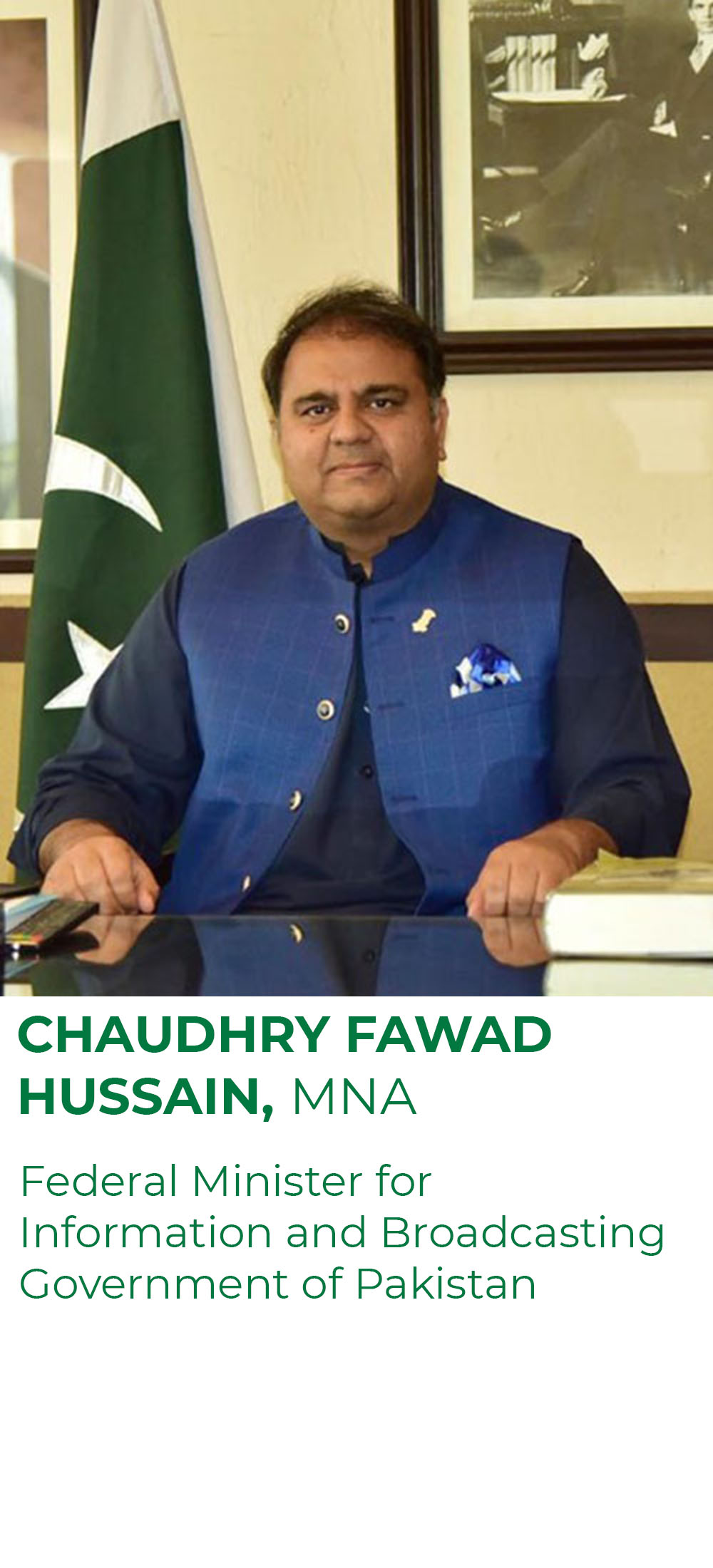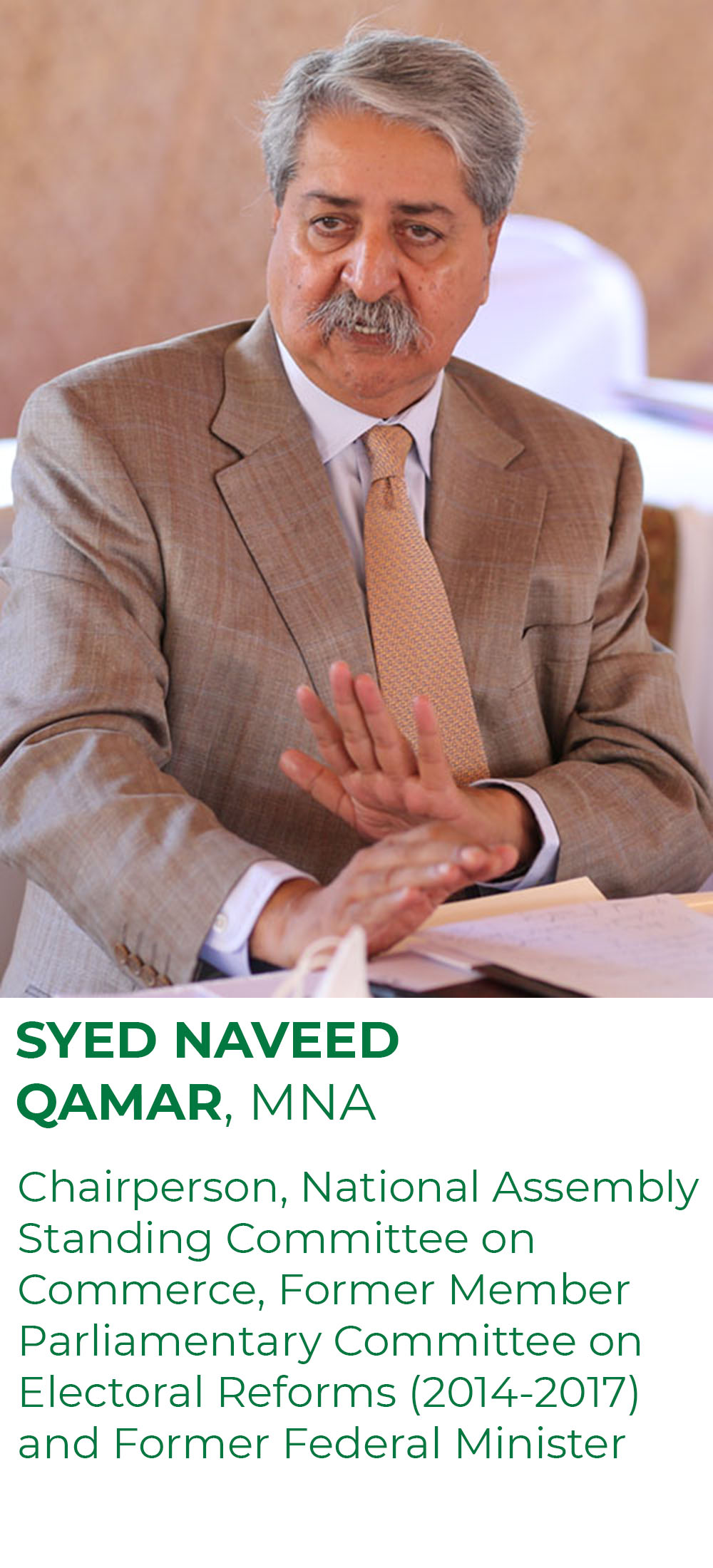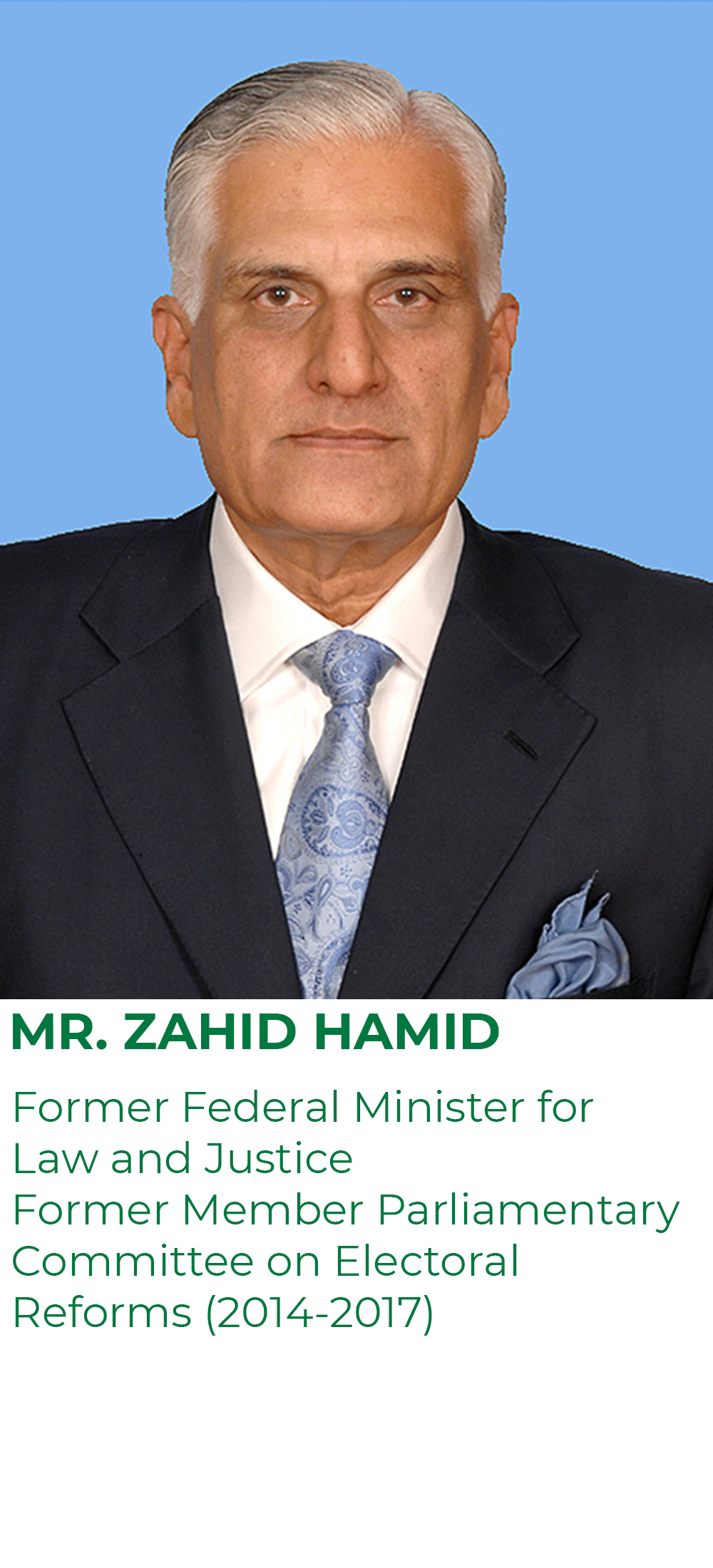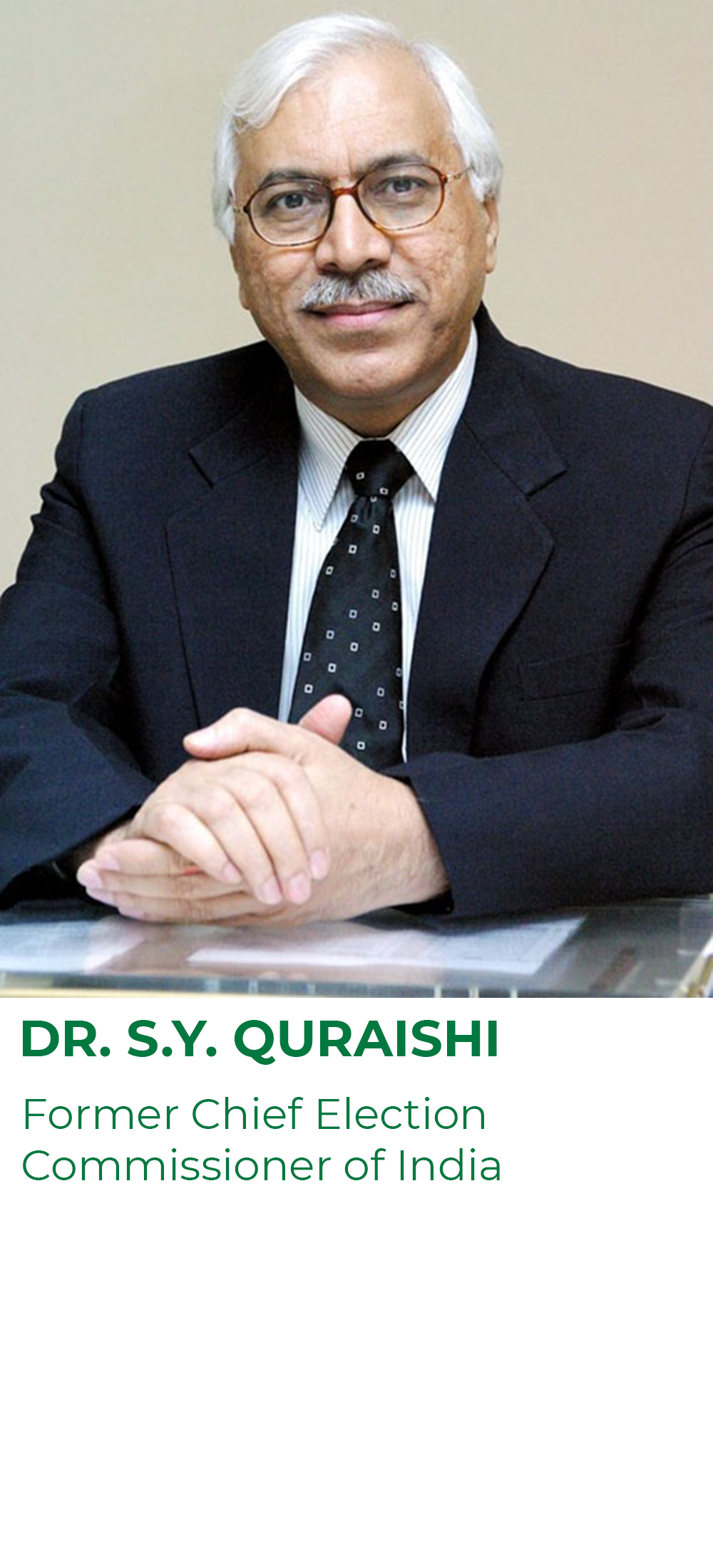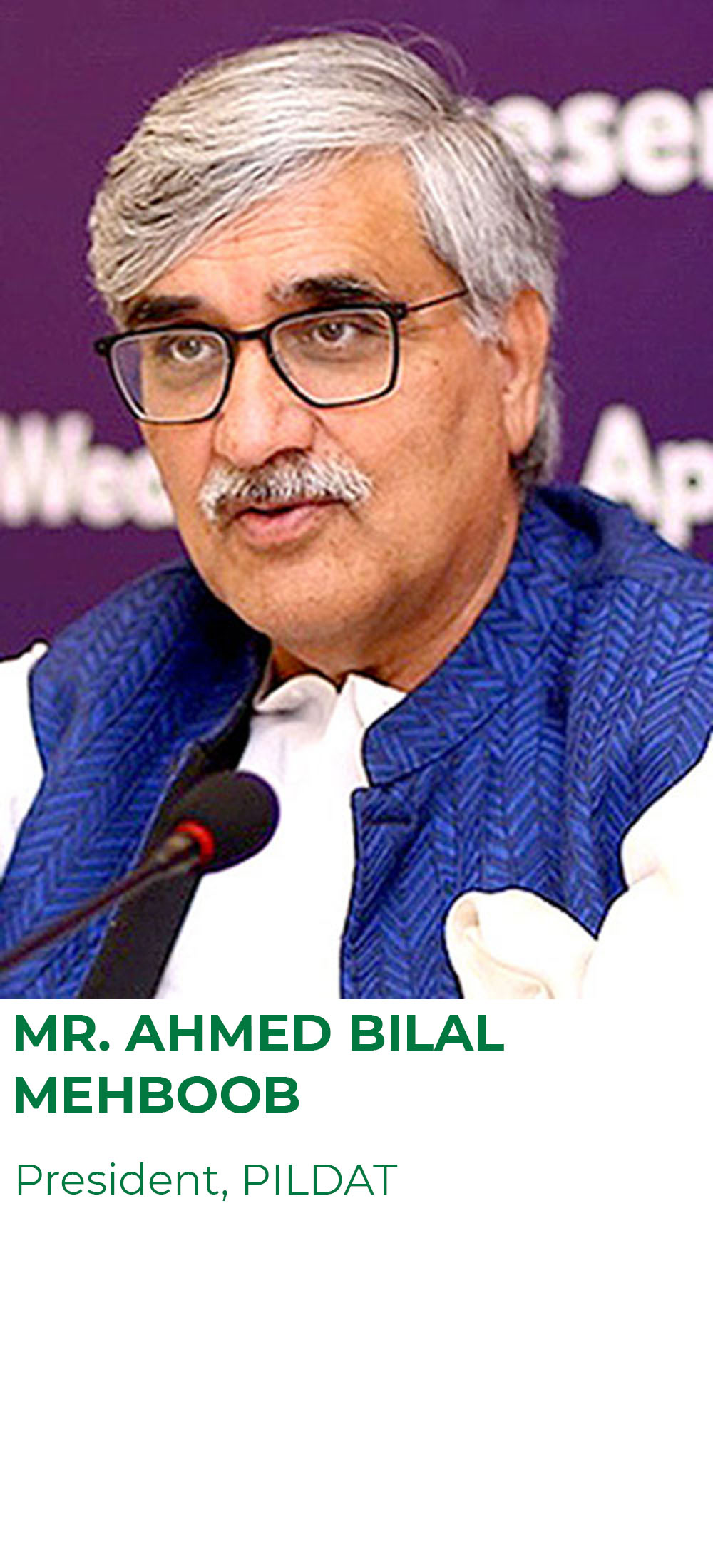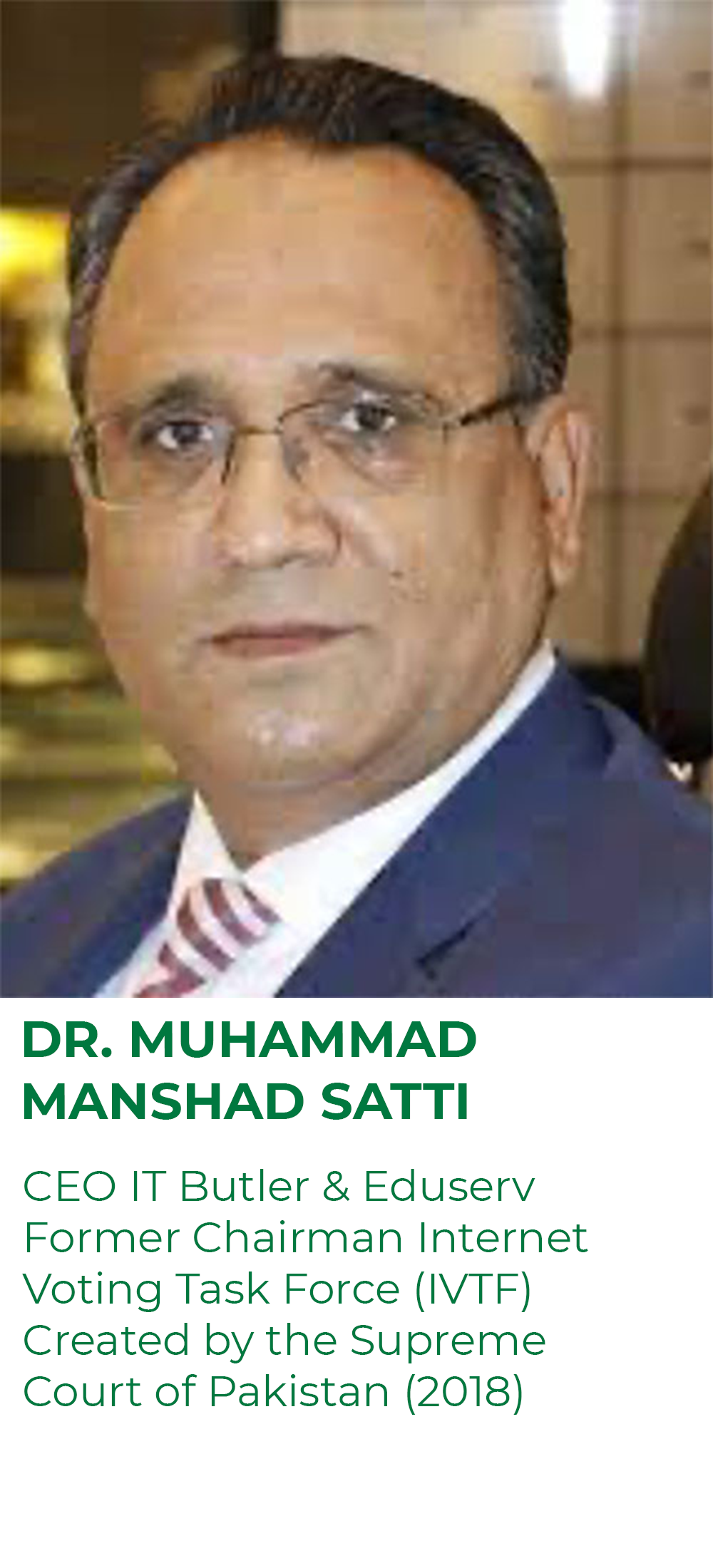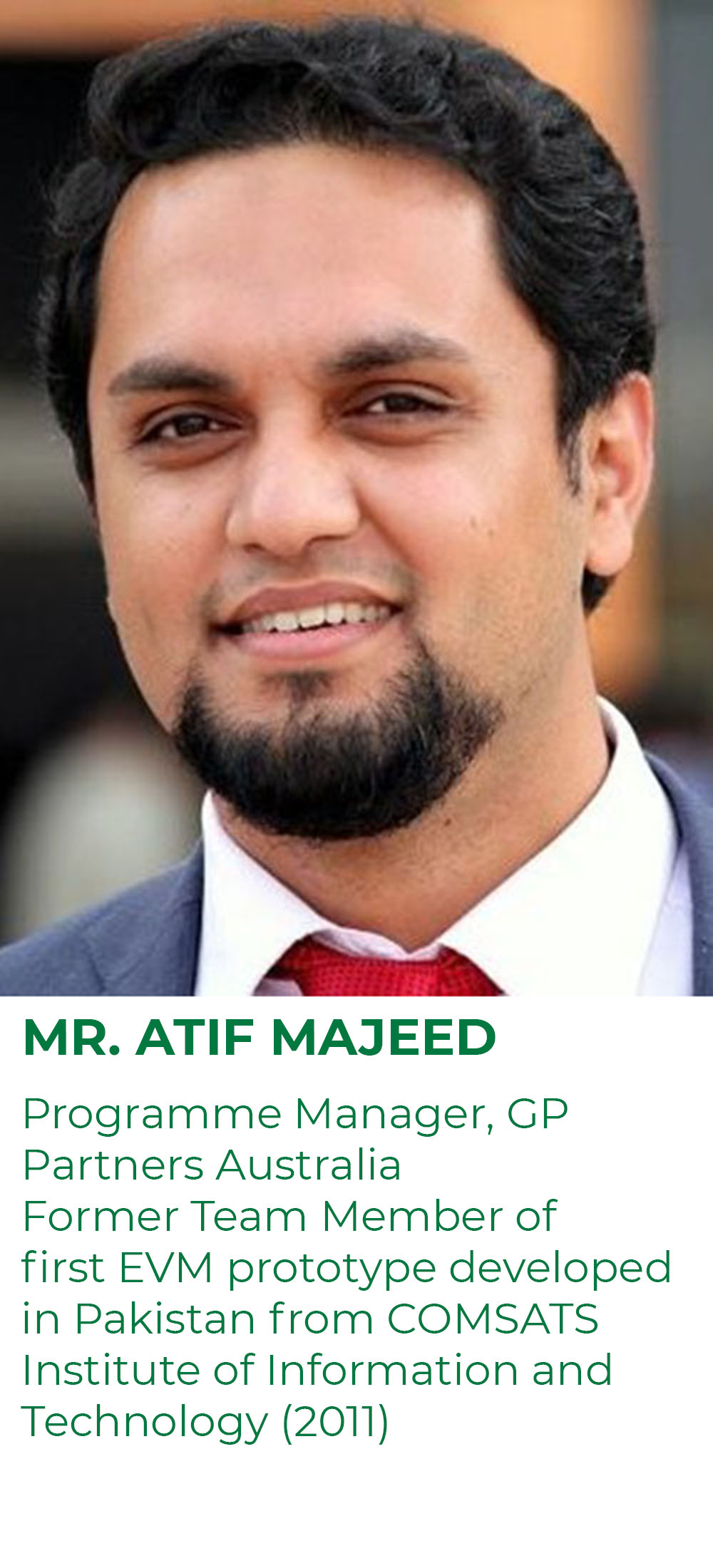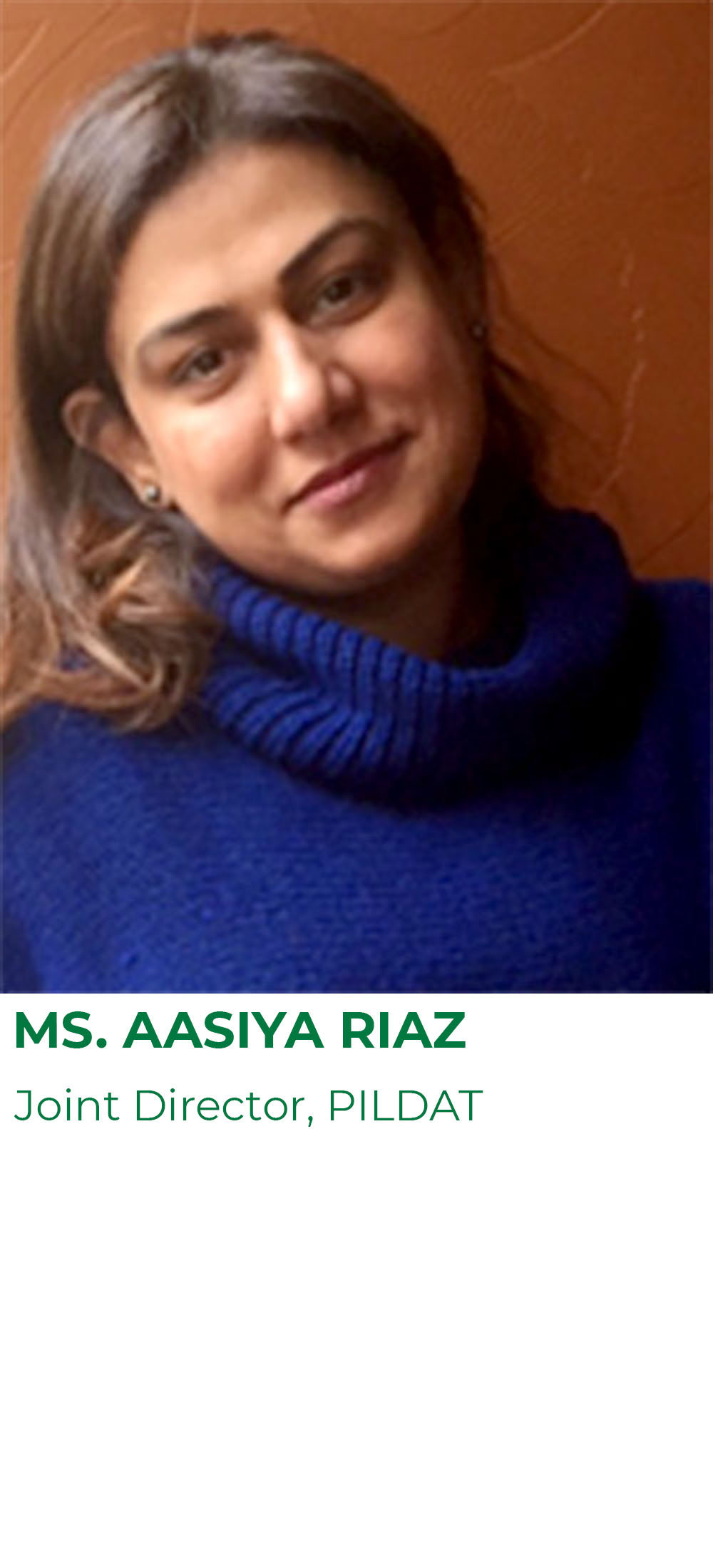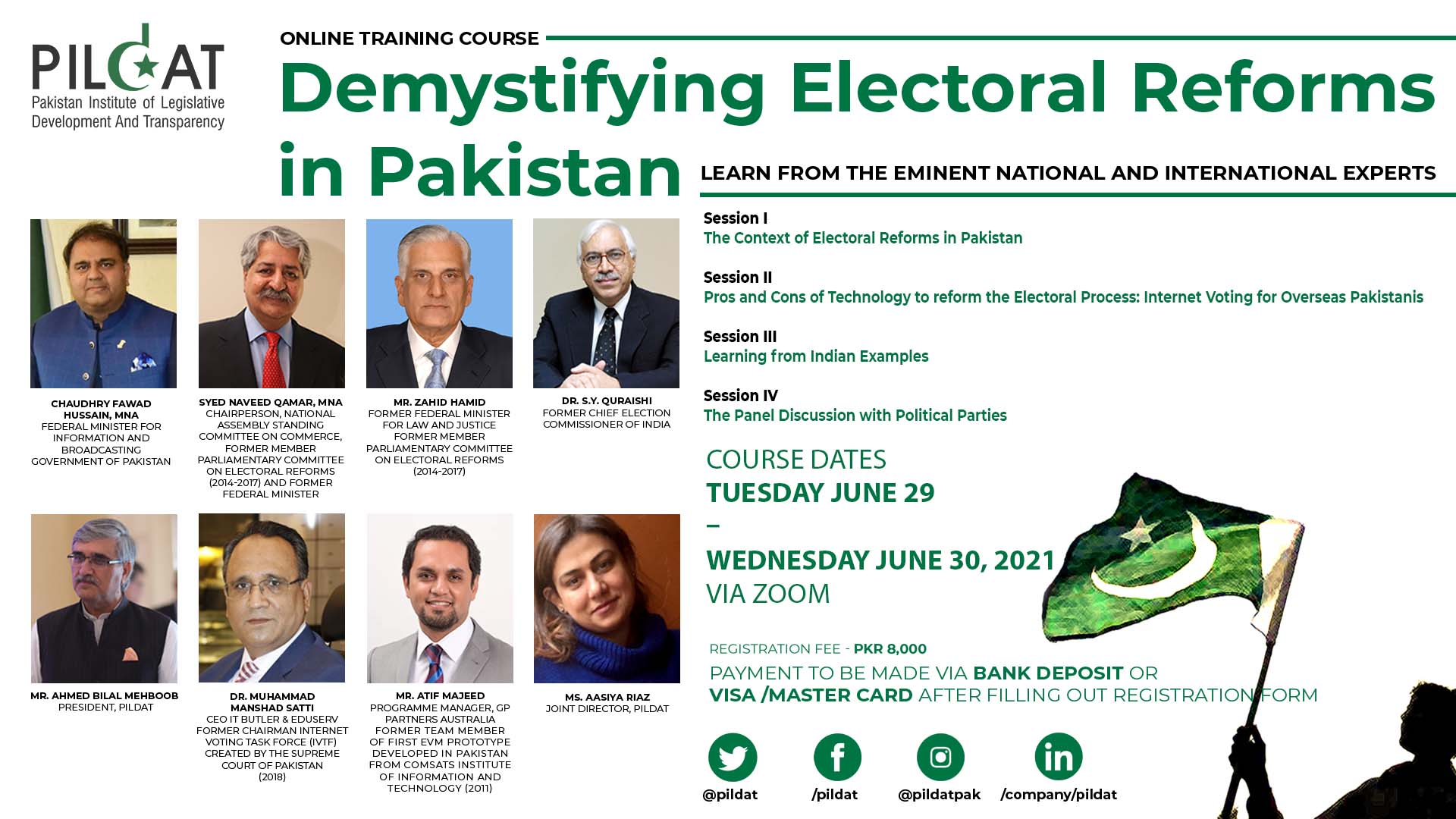
Online Course via Zoom
Demystifying Electoral Reforms in Pakistan
Tuesday-Wednesday; June 29 – 30, 2021
Timings: 10:00 am to 03:00 pm
The PILDAT Course on Demystifying Electoral Reforms in Pakistan has been designed by PILDAT to impart a clear understanding of the status of Pakistan’s electoral system. The course is of critical value to learn about the trajectory of electoral reforms in Pakistan, the current status and where we are or ought to be headed in ensuring a level playing field for all through a system of free and fair elections in Pakistan.
Who Should Attend?
The virtual course is open to anyone interested in the role of elections in democratic governance. It is equally beneficial to Pakistanis, Overseas Pakistanis and foreign nationals interested in learning about the electoral process in Pakistan. A participant could be:
- Professional working or aspiring to work in development sector
- Journalist
- Politician
- Diplomat
- Foreign professional interested in Pakistani Elections
- Political Science & Public Policy Faculty & Students
- CSS aspirant
- Overseas Pakistani wishing to know ins & outs of past and proposed
- Electoral Reforms in Pakistan
- Election professional, or
- Anyone simply interested in knowing facts about Pakistan’s journey of electoral reforms.
Registration Fee
Demystifying Electoral Reforms in Pakistan is a subsidized paid course and those interested to participate can do so after paying a Registration Fee of PKR 8,000.
Course Certificates
Certificates of completion will be given to successful participants of the course after completing the course.
When?
The two-days course is being organised on the following dates and will be conducted virtually, though you can only join once you register beforehand:
Dates: Tuesday-Wednesday; June 29-30, 2021
Time: 10 am to 3 pm both days
Mode of Conduct: Virtual Via ZoomWhile presentation slides will be in English, verbal communication will be both in Urdu and English
How to Join the Course
Any one wishing to attend the course can Register online here:PILDAT Course on Demystifying Electoral Reforms in Pakistan is a subsidized paid course and those interested to participate can do so after paying a Registration Fee of PKR 8000.
Material for further Study
The course is not just meant to impart knowledge and understanding on this crucial subject but by enrolling you also get to have free access to some of the key PILDAT publications on the subject.
What will the Course Entail?
Session I: The Context of Electoral Reforms in Pakistan
By Mr. Ahmed Bilal Mehboob, President, PILDAT
- Key Electoral Reforms so far undertaken by various Governments in Pakistan
- Key issues relating to elections which need to be addressed including ‘more laws’ Vs ‘Enforcement of existing laws’ debate
- Electoral Reforms proposed by the present Government and other entities
- Major impediments to credible elections
Session II: Pros and Cons of Technology to reform the Electoral Process: Internet Voting for Overseas Pakistanis
By Dr. Muhammad Manshad Satti, CEO IT Butler E-Services FZ LLC
- What is I-Voting?
- International experiences on I-Voting
- What are the key risks in adopting I-voting
- Costs involved and possible time-line for implementing I-Voting
Electronic Voting Machines (EVMs): How Feasible & Desirable for Pakistan?
By Mr. Atif Majeed, Programme Manager, GP Partners Australia, Former Team Member of first EVM prototype developed in Pakistan from COMSATS Institute of Information and Technology (2011)
- What are the components of EVM ‘package’ and how it evolved in Pakistan?
- What is the international experience of EVMs?
- Advantages of deploying EVMs
- Challenges, Cost and time-frame to procure and deploy EVMs in Pakistan
Session III: Learning from Indian Examples
By Dr. S.Y. Qureshi, Former Chief Election Commissioner of India
- Indian experience of historical evolution of EVMs and current Challenges
- Why India failed to facilitate remote voting for Non-resident Indians?
- Key contrasts of Indian and Pakistani Electoral Systems
- Does Indian Election Commission enjoy universal trust and respect by Indian political parties and public? If yes, what contributed to this trust?
- Indian experience on reforms relating to Political Finance
Session IV: The Panel Discussion with Political Parties
The panel discussion will be held to get varied political perspectives on the proposed electoral reforms in Pakistan.Moderator: Ms. Aasiya Riaz, Joint Director, PILDATPanelists will include:
- Fawad Chaudhry, MNA; Federal Minister for Ministry of Information and Broadcasting, Pakistan Tehreek-e-Insaf (PTI)
- Syed Naveed Qamar, MNA, Former Member Parliamentary Committee on Electoral Reforms (2014-2017), Pakistan Peoples Party (PPP)
- M Zahid Hamid, Former Federal Minister for Law and Justice; Former Member Parliamentary Committee on Electoral Reforms (2014-2017) Pakistan Muslim League-Nawaz (PML-N)
Who are the Resource Persons?
About PILDAT
PILDAT, founded in 2002, is an independent think tank focused on political and public policy research, capacity building and training, policy reform, oversight and policy advocacy. As an indigenous institution, PILDAT’s mission is to strengthen democratic governance in Pakistan.For further queries, please contact: [email protected]


